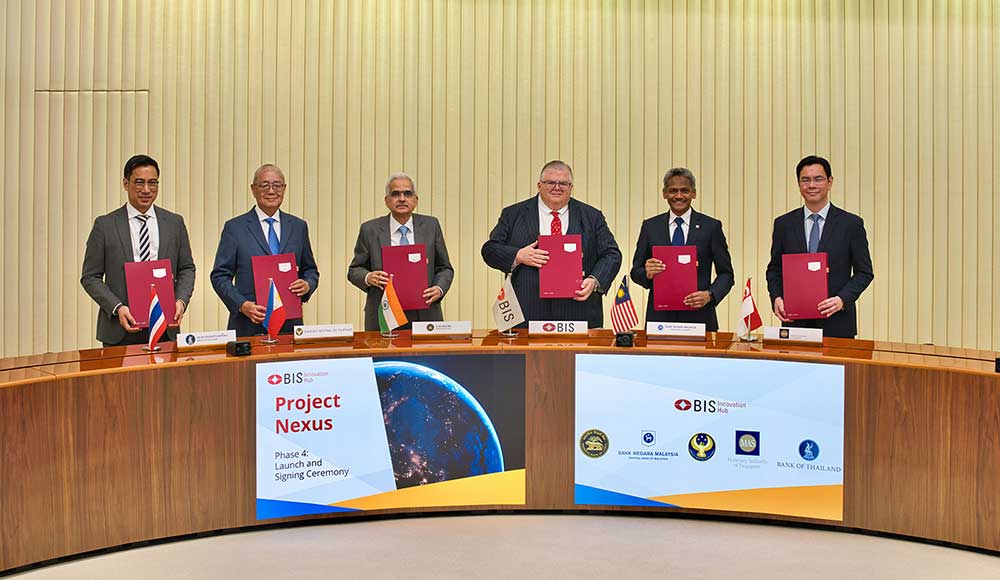The Bangko Sentral ng Pilipinas, the Bank for International Settlements (BIS) and partners today announced that they have completed the comprehensive blueprint for phase three of Project Nexus, which will allow ready participants to work towards the next stage of seamlessly connecting their instant payment systems.
Phase four will see the Central Bank of Malaysia, Bangko Sentral ng Pilipinas, the Monetary Authority of Singapore, the Bank of Thailand and domestic IPS operators — who worked together in phase three — joined by the Reserve Bank of India, expanding the potential user base to India’s Unified Payments Interface (UPI), the world’s largest IPS.
Bank Indonesia (BI) will continue its association with the project with special observer status. BI took part in phase three and will continue in this capacity to follow the project in the next stage of its development.
Nexus is designed to standardize the way domestic IPS connect to one another. Rather than an IPS operator building custom connections for every new country to which it connects, the operator only needs to make one connection to Nexus. This single connection would allow the IPS to reach all other countries in the network.
“I wish our partners in Nexus every success as they advance the project from concept to reality. This is the first BIS Innovation Hub project that central banks are moving towards a live phase together with instant payment providers. When implemented, it will greatly enhance cross-border payments in line with both the G20 cross-border payments program and our mission to develop public goods in the technology space to support central banks and improve the functioning of the financial system.
Even with just the first wave of connected countries, Nexus has the potential to connect a market of 1.7 billion people globally, allowing them to make instant payments to each other easily and cheaply,” said BIS General Manager Agustin Carstens.
“Empowered by a shared vision of efficient and reliable cross-border payments, the collaboration between the BIS and ASEAN central banks has been rather effective, and I’d like this to continue. Central banks have always played a role in payments as a public good. With Nexus, this role will be extended to cross-border payments, maximizing the network effects. Thus, the Bangko Sentral ng Pilipinas (BSP) will continue to work with the Philippine payments industry, BIS and other interested countries towards its live implementation. We look forward to Nexus providing overseas Filipinos with a cheaper and faster means to send money to family back home, and facilitating the globalisation of Filipino small and medium scale enterprises,” BSP Governor Eli M. Remolona, Jr. added.
The conclusions and lessons of phase three of Nexus are described in a report published today. This is complemented by a detailed scheme rulebook and technical implementation guides, as well as ISO 20022 message specifications, which are available to central banks on request.
To facilitate live implementation, the partner central banks and IPS operators have agreed to work towards establishing a new entity, the Nexus Scheme Organisation (NSO), which will be responsible for managing the Nexus scheme, and continuing the mission to achieve instant cross-border payments at scale.




